

Tao Te Ching
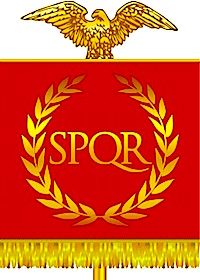
Roman / Italian Lineage
People (35)

Cassandra
12th C. BCE
Oracle of Crazy Wisdom
Symbol of the wisdom that’s hard to hear or difficult to practice when we do hear it, Cassandra also represents the disastrous consequences of not listening to that wisdom. Like her, many of the lineage holders on this list during their lifetimes were thought crazy, subversive, completely wrong and were only believed and respected much later. She personifies the intuitive, artistic, open approach to life in balance with Apollo’s linear emphasis on clear definitions, order, and superficial understanding of just the words, not the sense. We see both of these principles magnified today in politics and environmental debate, in all our forms of individual and social denial.
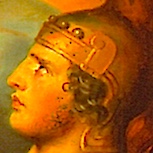
Aeneas
12th C. BCE
Personification of the hero myth
Hero of fallen Troy, first Roman hero, ancestor of legendary founders of Rome, Romulus and Remus, described as a progenitor of Julius and Augustus Caesar, claimed as an ancestor of the British Kings including King Arthur, symbol of piety, loyalty and family values; Aeneas has a long story in myth, legend, and possibly history. Immortalized by Homer, Virgil, literature from ancient to modern times, famous operas, film and video games; he is used as an example of individuation and the hero myth in Jungian psychology.
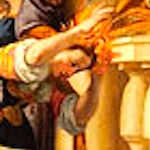
Lavinia
12th C. BCE
Prophetess and co-foundrer of the Roman Empire
Probably a legendary figure but “where there’s smoke, there’s fire” and Lavinia’s symbolic meaningfulness rates her place here. Co-foundress of the Roman Empire, prophetess, daughter of a king, wife of Aeneas, made famous by Virgil, Dante and Ursula Le Guin; Lavinia helped continue the Trojan traditions and ruled “behind the throne” for her too-young-to rule son with Aeneas, Ascanius whose progeny Romulus and Remus established Rome. She represents convergence and appreciating diversity rather than allegiance to narrow sectarianism. The symbol of her hair catching on fire foreshadows both the brilliance and violence of the Roman empire.

Cincinnatus
c. 519–430 BCE
Proof that power doesn't always corrupt
Roman politician, military leader legendary for his virtue, and dictator who twice voluntarily gave up all power; Cincinnatus left working his small farm when asked by his country to help during an invasion. An inspiration for generations of Romans and leaders all over the world including George Washington; he took complete control, won a great victory; and then, returning to his farm. relinquished his absolute power. Honored through the ages as example of just leadership and selfless service, his name graces many organizations, streets, plazas and cities including the USA’s Cincinnati.
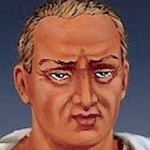
Cicero
106 – 43 BCE
One of Rome's greatest orators and writers with an immense influence on European languages greater than any other writer in history, Cicero introduced Greek philosophy and as a ground-breaking translator invented new Latin terms for philosophical concepts. His rediscovery sparked both the 14th Renaissance and the 18th century Enlightenment. Refusing an invitation for highest office from Julius Caesar, he championed democracy, fought against dictatorship and for these reasons was killed by Mark Antony. He inspired both the American and French Revolutions as well as everything from Jefferson’s writing of the Declaration of Independence to Copernicus placing the sun rather than the earth at the center of our solar system.
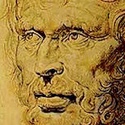
Lucretius (Titus Carus)
99 – 55 BCE
The greatest Western philosophical poet, a complete evolutionist, writer of the “loftiest poetry that any age has known” and the “most marvelous performance in all antique literature” (Durant); Lucretius described religion, the universe, and medicine from a rational point of view without superstition, faith, or dogma. An Epicurean with allegiance to only Venus and the power of love, he left behind all other gods and proposed a scientific understanding of the world including atomic theory and evolution. A huge influence on ancient times, people like Virgil and Horace; he also inspired Enlightenment era people, humanism, Thomas Jefferson and modern psychology.
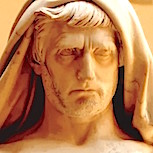
Cato (the Younger, Marcus Porcius Cato Uticensis)
95 – 46 BCE
Incorruptible politician, insightful Stoic philosopher, long-time stubborn rival and opponent to Julius Caesar’s despotism; Cato was one of the most active defenders of the Roman Republic and his suicide was considered by later Romans a great psychological and cultural victory over Caesar's tyranny. Hero in Virgil’s Aeneid, mentioned in the first paragraph of Moby Dick, immortalized through the ages in plays, novels, poetry, opera, and television; Dante described him in Purgatorio as a “saved soul” who was “worthy of so much reverence that never a son owed his father more.” Immune to bribes and corruption, he became a symbol for individual liberty over governmental tyranny; democracy over monarchy, reason over belief and superstition; Cato greatly influenced George Washington and the founding of the US government.
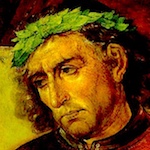
Virgil (Publius Vergilius Maro)
70 – 19 BCE
“The most lovable of Romans” and its greatest poet, advocate/inspiration/teacher for small farmers, Dante's guide through hell and purgatory, considered a great magician, seer, and saint as well as the embodiment of human knowledge and experience; Virgil began life as a poor farmer and once had to swim for his life to escape soldiers. Given patronage by Augustus he wrote the Aeneid that became the Roman national epic and standard text for school curricula after Augustus refused Virgil’s dying wish to have it burned. For hundreds of years his poems were opened at random as an oracle for insight into uncertainty and to solve problems.
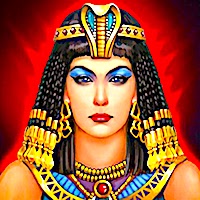
Cleopatra Κλεοπᾰ́τρᾱ Φιλοπάτωρ (Cleopatra VII Thea Philopator )
69 – 30 BCE
History’s most famous femme fatale
Egyptian pharaoh, naval commander, linguist, diplomat, medical author, and one of history’s most famous femme fatales; Cleopatra was actually known to have had only two lovers, Julius Caesar and Mark Antony. These were the two most powerful leaders of the time and consequently the two most likely to save her struggling, precarious dynasty. This strategy came close but failed and after her death, Egypt became a Roman province. Cicero knew her personally and—along with Virgil, Horace, and Ovid—described her negatively. This, at least in part, was a result of history being written by the victors and Egyptian sources like the Libyka give her more praise and respect. Even Plutarch was more positive and described her influence as based more on personality and charm more than just beauty. A descendant Ptolemy I, a Macedonian Greek general and companion of Alexander the Great, her story comes down to us today through the perspectives of luminaries including Chaucer, Shakespeare, George Bernard Shaw, Chinese scholar Yan Fu, Elizabeth Taylor, 43 movies, 200+ plays and novels, 45 operas, and 5 ballets.

Horace
65 – 8 BCE
One of the most famous Roman poets during his time and still considered one of the best from any time, Horace also became a spokesman for the Caesars during Rome’s change from Republic to Empire. A continuing aspect of Western education until our own times, he influenced Milton, Byron, Keats, Wordsworth, Omar Khayyam, Kipling, Robert Frost and most Western poets. The insight and wisdom condensed in his famous phrases like “carpe diem“ vividly live in our own culture more than 2000 years after his time.
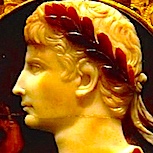
Augustus (Caesar)
63 BCE – 14 CE
Founder, first Emperor, and architect of the greatest empire of ancient history, the Pax Romana golden age, the longest period of prosperity in history, a regime that lasted almost 1500 years; Augustus became heir to Julius Caesar when 18 and leader of the western world at 31. Living simply like a philosopher instead of a king, he began with his world in corrupted chaos and established a balanced blend of order and freedom. He made good laws, helped both rich and poor, personally oversaw extensive infrastructure, 250,000 miles of roads, created police, fire-fighting, and courier services. He ruled Rome for 40 years and yet died believing he was a complete failure.
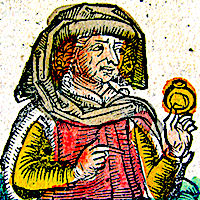
Ovid oʊvɪd (Publius Ovidius Naso)
43 BCE – 18 CE
Great poet and major influence on the Renaissance, Humanism, and world literature
Roman poet, inspiration for Renaissance humanism, consummate love elegist, and a tremendous influence on both Western literature and art; Ovid was staggeringly popular during his own time, during the Middle Ages, during the Renaissance, and still in our own time today. Fashioning himself as a love doctor, he wrote a 3-volume treatise called The Art of Love complete with instructional images and poetry about oral sex pleasure. It begins with teaching men how to best find a lover, seduce them, and later hide affairs. It continues with advice for women on how to avoid the traps and deceptions he has taught men. This also became immensely popular but his popularity didn’t serve him well politically. Emperor Augustus exiled him to a remote, harsh location where his friends avoided him and he remained until he died 9 years later.
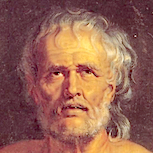
Seneca ˈsɛnɪkə (Lucius Annaeus)
4 BCE – 65 CE
Stoic philosopher, polititian, author, and first great Western thinker to describe the importance of relationship gratitude; Seneca taught and advised emperor Nero and for his efforts was forced to commit suicide. Humanist saint still popular and influential today, he influenced Dante, Chaucer, Petrarch, Erasmus, John Calvin, Shakespeare, Montaigne who was considered a "French Seneca,” and Joseph Hall considered “an English Seneca." Slandered by contemporaries, historians, and modern novelists as a sycophant to Nero and hypocrite, he did compromise to political expediency but also balanced faith and freedom promoting a simple and accepting lifestyle beyond anger, just politics, and global citizenship.

Jesus
3 BCE – 30 CE
Descriptions of Jesus were written in New Testament documents between 70 and 150 CE, a time of many different Christian books, many different gospels. In 170 CE church leaders first decided which books were “official,” which weren’t. More were added later and the modern version finalized at The Council of Hippo in 393. Some historians believe this selection was at least partially based on politics, patriarchy, and power. In any case, many of the banned and burned books known as Gnostic Gospels seem to have more wisdom and understanding, more connection to the non-thought lineage than the officially recognized texts. Many of the quotes here come from one of these, The Gospel of Thomas discovered in 1945.

Mary of Magdala
3 BCE – 120 CE
Called the ”Apostle to the Apostles" by the 3rd century theologian Hippolytus, the story of Mary of Magdala resembles that of Mahākāśyapa – the only one of the Buddha’s disciples to understand the Flower Sermon. In the Gospel of Mary, she was the only disciple to understand Jesus’ inner teachings about basic goodness, discovering the truth within ourselves rather than an external authority, the dangers of following charismatic leaders and sets of rules and laws rather than the wisdom within.
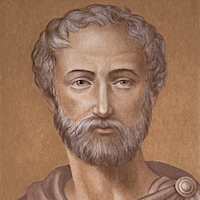
Pliny (Pliny Gaius Plinius Secundus, Pliny the Elder)
23 – 79 CE
Founding father of the encyclopedia
Roman natural philosopher, influential and prolific author, military commander, and a friend of emperor Vespasian; Pliny wrote probably the first and definitely the most influential encyclopedia, Naturalis Historia (Natural History). His only surviving manuscript, this comprehensive 37-book masterwork based on Stoic and pantheistic philosophy gives a unique window into Ancient Rome. Pliny died suddenly in 79 CE possibly while trying to rescue a friend and their family during the Mount Vesuvian volcanic eruptions.
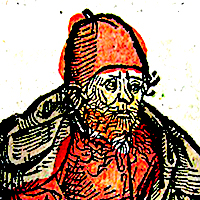
Quintilian
35 – 100 CE
Master of oratory, first advocate for a child-centered education, Roman rhetoriciann teacher to Pliny, and major influence on St. Jerome, Hippo, Juvenal, and John Stuart Mill; Quintilian also—according to Petrarch—“provided the inspiration for a new humanistic philosophy of education.” He became lost to history however until 1416 when Pogio while searching a filthy old dungeon found a copy of his masterpiece, Institutio Oratoria "buried in rubbish and dust.” A major inspiration in the development of humanism, on Bach’s music, and Martin Luther’s philosophy; Quintilian helped establish a solid intellectual foundation for the “words over the sense” and analyzed the symbolic, metaphorical, and figurative nature of language.

Plutarch (Lucius Mestrius Plutarchus)
46 – 120 CE
Teller of tales and distiller of wisdom, philosopher, magistrate and Delphic priest; Plutarch was frequently paraphrased and quoted by Shakespeare. Ralph Waldo Emerson called his writings "a bible for heroes,” Montaigne's Essays include over 400 references, and he was admired by Boswell, Ben Jonson, Alexander Hamilton, John Milton, Louis L'amour, Francis Bacon, and Robert Browning. An example of Mencius’ sage whose words and actions cause the stupid to become wise, Plutarch remains an enormous influence on world literature as well as an example of finding meaning, inspiration, and profound lessons from experiences and events.

Epictetus Ἐπίκτητος
55 – 135 CE
Born a slave, Epictetus found freedom and—until he was banished in 93 CE—taught philosophy in Rome as a way of life. He taught that the foundation of all philosophy is self-knowledge, that we all have basic goodness, and that we are not separate but interconnected and one with each other and all of the world. His influence extends from Marcus Aurelius to medal-of-honor winning US vice-presidential candidate James Stockdale and includes artists like James Joyce, Tom Wolfe, David Mamet and J.D. Salinger.
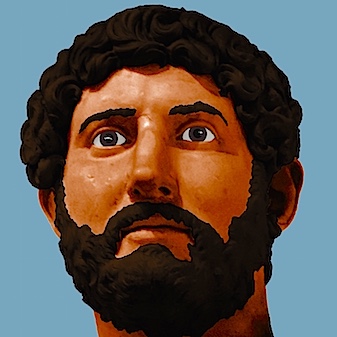
Hadrian
76 – 180 CE
Pillar of the golden age of Rome, Hadrian hated war and loved philosophy, literature, and the arts. He prevented corruption, favored the poor over the rich, and governed this empire better than any time before or since. Gibbon called this period of time “the only period in history in which the happiness of a great people was the sole object of government.” He carefully listened to complaints and suggestions later securing the reigns of his successors, Titus and Marcus Aurelius - administrations called by Will Durant “among the most beneficent in history.” He rebuilt the Pantheon in a new style copied by St. Peter’s Basilica and the U.S. Capitol in Washington, D.C.
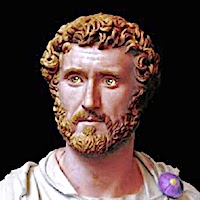
Antoninus Pius (Antonines)
86 – 161 CE
One of history's most enlightened, major political leaders
One of the best political leaders of all time, Antoninus began his reign by giving the country an immense amount of his personal fortune. Religious but free of superstition, he encouraged the tolerance of Jews, Christians, freed slaves, and other non-Roman religions. He brought Rome to its apex of prosperity and peace giving the Empire its most equitable period of all time. He liberalized the law, initiated the rights of defendants in trials still used today, told judges to treat defendants as innocent until proven guilty, enforced more equality between men and women, and never made decisions without working on consensus with the Senate. With virtually no enemies and hundreds of friends, he was immune to flattery and was so modest that it was impossible to tell he was emperor by just observing his behavior.
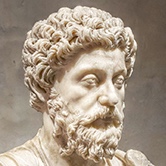
Marcus Aurelius
121 – 219 CE
One of the most important Stoic philosophers and last of the "Five Good Emperors,” during a time Gibbon described as, a period when "the Roman Empire was governed… under the guidance of wisdom and virtue.” He was known as a philosopher king and by many as the only Roman emperor who not only spoke and knew wisdom but also lived it. His book, Meditations describes setting up a just government of service and duty and was a favorite of leaders and philosophers from Frederick the Great to John Stuart Mill, from Goethe to Chinese Premier Wen Jiabao, and US president Bill Clinton.
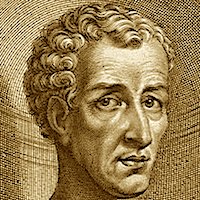
Lucian of Samosata
125 – 180 CE
Monumental influence on western literature.
Syrian satirist, Roman rhetorician, Egyptian official, traveling teacher, and prolific, popular author; Lucian used sarcasm, irony, and humor to make fun of philosophical schools, superstition, religious practices, plutocracy, and paranormal beliefs. His writings include the first science fiction, A True Story (complete with journeys to the moon and to Venus, extraterrestrials, artificial life, and interplanetary warfare), the oldest known version of "The Sorcerer's Apprentice,” and his invention of the comic dialogue genre in his parodies on the Platonic dialogue. Depicted in a Byzantine encyclopedia as burning in hell because of his criticism of Christianity, he became a monumental influence on western literature. His books inspired Shakespeare's Timon of Athens and Hamlet, Swift's Gulliver's Travels, Erasmus's Encomium Moriae, Thomas More's Utopia as well as Botticelli's paintings. His influence extends through the ages by way of Voltaire, Diderot, Cyrano de Bergerac, Jules Verne, David Hume, Henry Fielding, and many more.
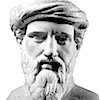
Plotinus
204 – 249 CE
The founder of Neoplatonism and inspiration for mystics of many traditions - Gnostic, Islamic, Polytheistic, Christian, Jewish - Plotinus was taken as an inspiration and guide by such diverse thinkers as Bertrand Russell and Ralph Waldo Emerson, Radhakrishnan and Coomaraswamy, Coleridge and Yeats, the Sunni and Ismaili Shia in Islam, emperor Julian and St. Augustine. He emphasized contemplation as a powerful, transforming practice and how mind shapes perception, rather than passively receiving something “objective.” His experience and teaching of the “union with the One” translates as an early Western version of the Eastern concept of “Enlightenment.”

Francis of Assisi
1181 – 1226 CE
One of the most venerated religious figures in history and considered the patron saint of animals and the natural environment, a pope confirmed Francis as “Patron Saint of Ecology.” He believed nature itself is “the mirror of God” and he’s closely connected to the lineage of Lao Tzu, the early Taoists, Thoreau, Emerson, and Native Americans. He traveled widely, worked hard to end the Crusades, dedicated himself and his followers to poverty and helping the poor, exposed the materialism of the church leaders of his time, and by many accounts successfully changed history.
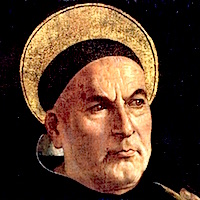
Thomas Aquinas
1225 – 1274 CE
Greatest Catholic theologian/philosopher, considered one of the top 12 western philosophers of all time, jurist, and Dominican friar; Aquinas had a dominant influence on Western culture, ethics, law, and political theory. Breaking from the theology of his time, he attempted reconciling ancient Greek philosophy (mainly Aristotle) with Christianity, extolled reason over blind faith, and created an intellectual platform for science that is still being used today by cognitive neuroscientists researching brain dynamics. Undermining dogmatic, rigid approaches to morality, his “Principle of double effect” emphasizes intention over consequences and is still debated in places like the U.S. Supreme Court. John Stuart Mill criticized this attitude stating that while intention may help judge character, it doesn’t effect the rightness/wrongness of an action.
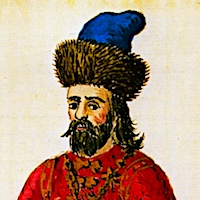
Marco Polo
1254 – 1324 CE
Epitome of adventurous business, political, and geographical exploration
Merchant par excellence, adventurous explorer, successful administrator for Kublai Khan in China, and popular author; Marco Polo became an inspiration for Christopher Columbus, the import-export global economy, and for most of the explorers who came after him. Setting off from Europe when only 17 years old, he spent 24 years in China becoming the governor of Hangzhou, returned to find his city of Venice at war with Genoa, tried to help but only ended up in jail where he described his travels to a cellmate who used them to write the famous book, Travels of Marco Polo. The difficulty and danger of travel in those days in illustrated by survival statistics: on their journey back from China, more than 600 people began with them but only 18 survived the 2-year journey to Hormuz. Later he expanded his business interests to become very wealthy, married and had three children. Frequently accused of exaggeration and fabrication, on his deathbed he responded to this criticism by saying, "I have not told half of what I saw."
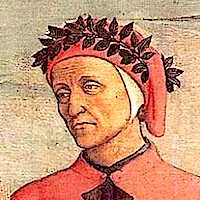
Dante (Durante degli Alighieri)
1265 – 1321 CE
Dante fell madly in love with Beatrice when she was only 8 years old and described his passion as “a God stronger than I who came and ruled me.” This unrequited love lasted through her marriage to another, her death at only 24, and throughout Dante’s life. It inspired his great work, The Divine Comedy now considered the greatest book in the Italian language and most important Middle Ages poem. Dante’s politics led to his exile, loss of citizenship and property, 15 years of poverty-stricken wandering, and a decree for him to be arrested and burned alive. His vivid descriptions of hell were based on personal experience and his writings saved him from the intensity of his suffering as it helped establish modern literature. Florence apologized for his exile 700 years later.
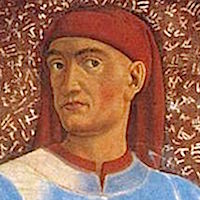
Giovanni Boccaccio dʒoˈvanni bokˈkattʃo
1313 – 1375 CE
Close student, friend and collaborator with the “Father of the Renaissance,” Petrarch; Boccaccio became a popular poet/writer, “the first Greek humanist in Western Europe,” and promoted the ancient literature, philosophy, and history which set the stage for the Renaissance. His book on classical mythology became a key reference for 400+ years and challenged Christian belief that only the Bible was relevant, that there was only harm in “pagan” writings. In an early nod to feminist proposition, he wrote the first collection devoted to the biographies of famous women. Living through a tumultuous time of political intrigue, the executions of his friends, bitter poverty and bad health; he resisted many of the era’s superstitious and setting-sun forces; translated works by Homer, Euripides, and Aristotle; and helped launch one of history’s most influential shifts, the Renaissance.
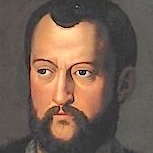
Cosimo de’ Medici
1389 – 1464 CE
Inheritor of a huge fortune; wandering bibliophile; owner of banks, businesses, farms, and factories; friend to cardinals and sultans alike; founder and “first among equals” leader of a political dynasty that helped begin and extend the Renaissance; Cosimo de’ Medici did what the rich need to do today: use their wealth to benefit the world instead of only themselves. In his own and other countries he strongly supported public works, charities, and libraries; funded the work of poets, artists, scholars and philosophers; established an academy for the study of Plato and launched the Renaissance revolution of philosophy over the Middle Ages’ scholasticism - the sense over the words.
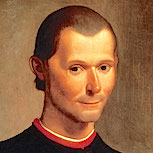
Machiavelli (Niccolò Machiavelli)
1469 – 1527 CE
Unjustly vilified by history as well as his contemporaries, Machiavelli is known as the “founder of modern political science,” a major influence on the USA’s founding fathers, and the development of modern science. Personified with unscrupulous, immoral political activity, devious deceit, realpolitik and evil tyrants; many of history’s true heroes like Spinoza, Rousseau, Francis Bacon, John Milton, Montaigne, and Descartes secretly considered him an inspiration for the Enlightenment that followed 200 years later. Rousseau thought his book The Prince - far from condoning - was not written as advice to ruler who already understood these principles but rather satirically exposed their corrupt methods to the common people. Not the source for the quote, “The end justifies the means,” Benjamin Franklin and Thomas Jefferson considered him a “partisan of liberty” and John Adams seriously studied his philosophy and used it to clarify the Constitution’s idea of mixed government.

Michelangelo
1475 – 1564 CE
One of the greatest artists of all time and complete “Renaissance man,” much of Michelangelo’s painting, sculpture, and architecture stands with the world’s most famous. Also a poet and engineer and unlike many famous artists, his genius was recognized during his lifetime – he was the first Western artist with a biography published while still alive. His statues of David and the Pietà are the most famous sculptures in the west, his painting of the Sistine Chapel ceiling is the “cornerstone of Renaissance art,” his architectural innovations were revolutionary and St. Peter’s Basilica is regarded as the greatest building of its age and remains one of the two largest churches in the world.
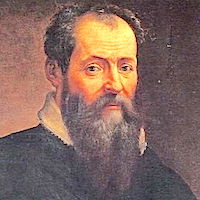
Giorgio Vasari dʒordʒo vaˈzaːri
1511 – 1574 CE
The first art historian, friend and student of Michelangelo, first to use in print the term "Renaissance,” architect, politician and painter; Vasari praised competition and was one of the first writers to use this term related to economics. The first to write a series of biographies about famous artists and describe the continuity of art, his dedication to artists and their art was so great that he once ran into the peril of a rioting crowd to rescue the pieces from an arm of Michelangelo’s statue “David” they had broken with a bench. Unlike many artists unrecognized until after their death, he was famous during his lifetime, became very wealthy, and even a powerful politician.
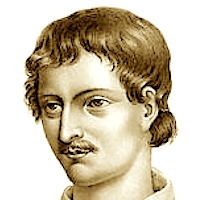
Giordano Bruno
1548 – 1600 CE
Giordano Bruno (1548 – 1600)
Like Galileo, a "martyr of science," Dominican friar, Epicurean poet, cosmological mathematician; Bruno fled his monastery and wandered through France and Italy teaching. Burned at the stake by the Roman Inquisition for his scientific, pantheistic, and Epicurean views; Bruno first described stars as distant suns with planets of their own, championed the Copernican view that the earth is not the center of the universe, and taught the dangerous view that likewise people and our civilizations are not the center of the cosmos but only a tiny part of something much larger. This led to an 8-year trial, his torture and death but also a strong foundation for the newly emerging sciences and the openness to free thought.
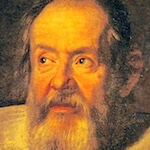
Galileo
1564 – 1642 CE
Arrested by the Inquisition for the last 9 years of his life but called by Einstein “the father of modern science;” books banned by the Catholic Church but called by Stephen Hawking responsible for the birth of modern science; condemned and persecuted by conservative contemporaries but called by Grotius “the greatest mind of all time;” Galileo – though living in a time when “heretics” were burned at the stake – raised the status of science, with his telescope designs demonstrated the universe’s immensity, and helped science separate from both philosophy and religion.
Related Sources (3 sources)
Discourses of Epictetus, Ἐπικτήτου διατριβαί by Epictetus
Decline And Fall Of The Roman Empire by Edward Gibbon
Quotes about the Roman / Italian Lineage (18 quotes)

“When he goes to the court of Rome and sees the lewd and wicked life of the clergy, not only will he never become a Christian, but, were he already a Christian, he would infallibly turn Jew again.”
Comments: Click to comment

“Those who read what the beginning of Rome was, and what her lawgivers and her organization, will not be astonished that so much virtue would have maintained itself during so many centuries; and that so great an empire should have sprung from it afterwards.”
Comments: Click to comment
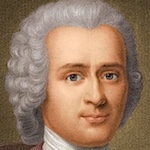
“The contradiction between the teaching of The Prince and that of the Discourses on Livy and the History of Florence shows that this profound political thinker has so far been studied only by superficial or corrupt readers. The Court of Rome sternly prohibited his book. I can well believe it; for it is that Court it most clearly portrays.”
Comments: Click to comment
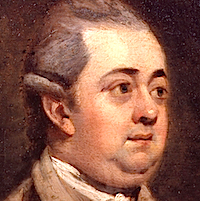
“Although Pius had two sons, he preferred the welfare of Rome to the interest of his family, gave his daughter Faustina in marriage to young Marcus, and with a noble disdain or rather ignorance of jealousy, associated him to all the labors of government... Their united reigns are possibly the only period of history in which the happiness of a great people was the sole object of government.”
Comments: Click to comment

“Under the Roman Empire, the labor of an industrious and ingenious people was variously but incessantly employed in the service of the rich.”
Comments: Click to comment
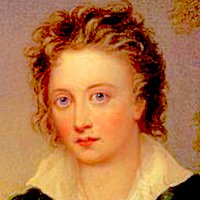
“Imperial Rome poured forth her living sea
From senate house and prison and theater
When Freedom left those who upon the free
Had bound a yoke which soon they stooped to bear.”
Comments: Click to comment

“The struggle between liberty and authority is the most conspicuous feature in the history of... Greece, Rome, and England.”
Comments: Click to comment
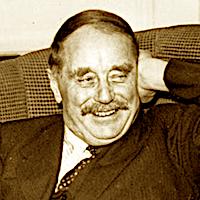
“The incuriousness—the complete absence of science—of the Roman rich and the Roman rulers was more massive and monumental even than their architecture... Rome was content to feast, exact, grow rich, and watch its' gladiatorial shows without the slightest attempt to learn anything of India, China, Persia, Buddha or Zoroaster...”
Comments: Click to comment

“Another great deficiency of the democratic machinery of the Roman Republic was the absence of any general elementary political education at all... The ordinary Roman was not only blankly ignorant of the history of mankind but also of the conditions of foreign peoples”
Comments: Click to comment
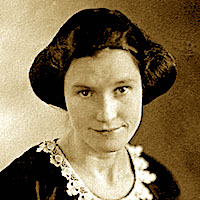
“The final reason for Rome's defeat was the failure of mind and spirit to rise to a new and great opportunity. They were split into the sharpest oppositions, extremes, a narrow selfishness that kept men blind when their own self-preservation demanded a world-wide outlook. Material development outstripped human development; the Dark Ages took possession of Europe, classical antiquity ended.”
Comments: Click to comment

“When not directly under Greek guidance, the Roman did not perceive beauty in every-day matters, or indeed care to do so. Beauty was unimportant to him. Life in his eyes was a very serious and a very arduous business, and he had no time for what he would have thought of as a mere decoration of it.”
Comments: Click to comment

“It was the Stoics who invented the conception of the brotherhood of man. They taught that all men are children of Zeus and that the sage will ignore the distinctions of Greek and barbarian, bond and free. When Rome brought the whole civilized world under one government, the political environment was favorable to the spread of this doctrine.”
Comments: Click to comment
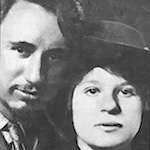
“The essential cause of Rome's decline lay in her people, her morals, her class struggle, her failing trade, her bureaucratic despotism, her stifling taxes, her consuming wars... it was an empty shell when Christianity arose and invasion came.”
Comments: Click to comment

“Plato's reduction of political evolution to a sequence of monarchy, aristocracy, democracy, and dictatorship found another illustration in the history of Rome.”
Comments: Click to comment
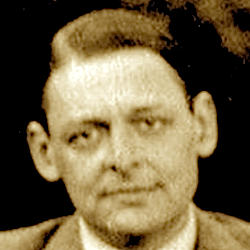
“[Aeneas] is the symbol of Rome; and, as Aeneas is to Rome, so is ancient Rome to Europe. The Roman Empire and the Latin language were not any empire and any language, but an empire and a language with a unique destiny in relation to ourselves...”
Comments: Click to comment

“The early Roman Republic was fed by its citizen-farmers; the Roman Empire, by its slaves.”
Comments: Click to comment
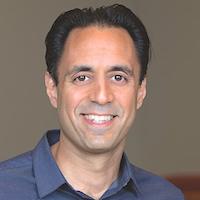
“Caesar did not destroy the Roman Republic. The Republic destroyed itself—one episode at a time—by refusing to see where they were headed.”
Comments: Click to comment
Comments (0)